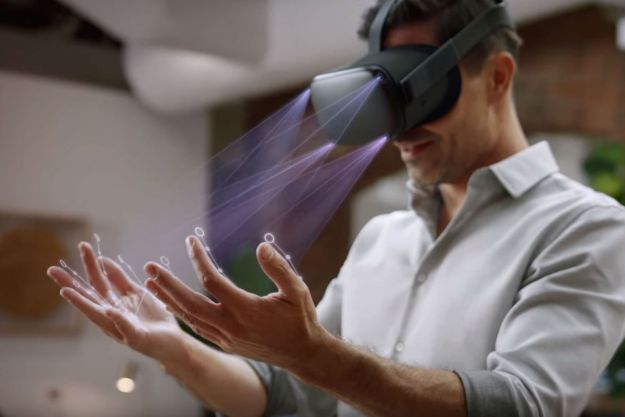
“Vive owners will find all the same fun features as the Rift version — you can create your own avatar, view Facebook photos and 360 videos, play games, draw with markers, go Live, make Messenger video calls, and (my favorite) take awesome selfies,” Franklin says. “Plus, it’s cross-platform compatible, so Vive users can also hang out in Spaces with friends who use Rift.”
Facebook Spaces arrived on the Oculus Rift in April. The idea was to bring
HTC Vive owners will start their Facebook Spaces adventure by creating an avatar based on an uploaded photo. From there, they can customize the avatar’s eye color, facial features, hairstyles, and more. After that, they can jump into a virtual environment, and invite friends with HTC Vive or Oculus Rift headsets.
Facebook Spaces is not currently compatible with the Oculus-powered Gear VR. But the Oculus Rift with its Touch controllers and sensors now only costs $379, which is far cheaper than it was when Facebook Spaces arrived in April. At the time, the headset/controller bundle cost $598, down from a heftier $798.
But now Facebook is expanding into Vive territory. The kit costs a more expensive $500, and includes two motion controllers, two base stations, a link box, and earbuds. Of the two, the HTC Vive reportedly had control of the PC-based VR headset market until
But Facebook doesn’t plan to stop with the HTC Vive, as
“VR is such a powerful way to feel present with the people you care about when you can’t physically be together,” Franklin added. “With Facebook Spaces, we’ve always been committed to bringing the power of social VR to as many people as possible, across platforms and devices.”
Facebook Spaces is still listed as a beta, so expect changes as
Editors' Recommendations
- HTC’s leaked Vive Flow headset might offer portable VR
- Everything HTC announced at ViveCon 2021: Vive Focus 3 and Vive Pro 2
- Two new ‘game-changing’ VR headsets could arrive at HTC’s ViveCon next week
- How to build a cheap VR-ready PC
- Facebook unveils the Oculus Quest 2 VR headset


